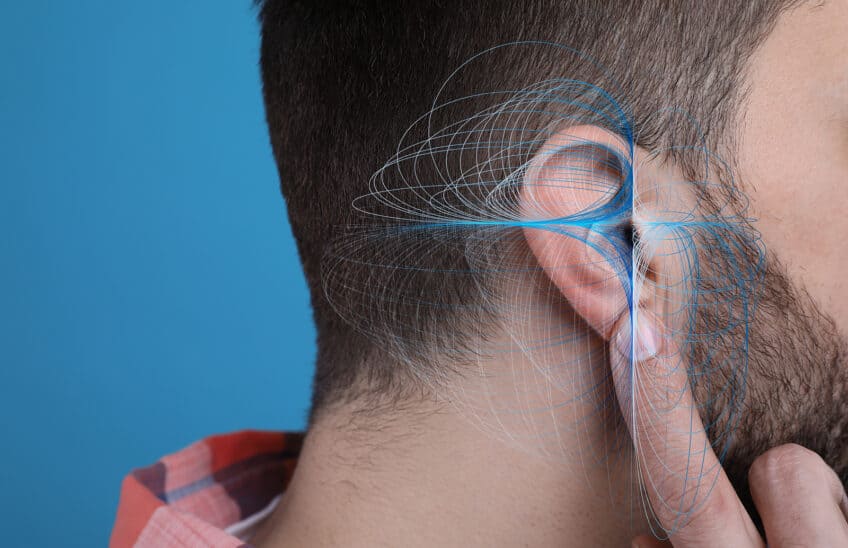Did you know that nearly 1 in 6 people have some degree of hearing loss? Over 48 million people experience hearing loss, a chronic medical condition that reduces capacity to hear sound. Though hearing loss is pervasive, it is widely undertreated. Only a third of people who could benefit from treatment actually receive it. Contributing to a delay in treatment is not recognizing hearing loss symptoms until it’s worsened hearing health. Being able to identify common signs can help you intervene and seek treatment early. Treating hearing loss not only transforms hearing but overall health, wellness, and quality of life.
What is hearing loss?
Hearing loss occurs when the auditory system – the sensory system for hearing – is damaged or disrupted. The auditory system consists of the ears and brain which work together to absorb, process, and assign meaning to speech and sound. There are several factors that can affect this process in ways that produce hearing loss. A few of the most common causes of hearing loss include: loud noise exposure, aging, existing medical conditions, head injuries, inner ear disorders, and chronic ear infections. These factors can damage the sensory cells in the inner ear which are integral to how sound is processed.
Sensory cells in the inner ear are responsible for converting incoming sound waves into electrical signals which get sent to the brain to be further processed and assigned meaning to. When these cells are damaged, their capacity to process sound waves effectively is reduced; producing hearing loss. Unlike other types of cells we have, sensory cells in the inner ear do not regenerate. There are also no medical interventions that can repair damage or replenish these cells which means that the damage is penance, resulting in chronic hearing loss.
What are common hearing loss signs?
Hearing loss typically occurs gradually so spasms can remain unnoticed or ignored for quite some time. Impaired hearing produces a range of symptoms which make it tough to hear and participate in conversations. Common symptoms include the following:
- Tinnitus: a ringing or buzzing sound in one or both ears.
- Sounds are slurred or muffled.
- You struggle to hear in environments with background noise.
- Finding yourself responding with “huh” or “what” often.
- Frequently asking others to repeat themselves, speak louder, and/or slower.
- Needing to turn up the volume on your TV and/or other electronic devices.
- Missing your alarm clock because you didn’t hear it.
- Lip reading to help identify individual words.
- Having a tough time following conversations over the phone.
- Struggling to follow movies or TV shows.
- Pretending to hear to get through a conversation.
- Feeling excluded or ignored during conversations.
- Avoiding social settings and gatherings.
- Hearing more clearly out of one ear compared to the other.
These symptoms can be mild to more profound, depending on the degree of hearing loss you are experiencing. Over time, people experiencing loss may skip out on spending time with others and avoiding social activities to cope with their hearing loss. Social withdrawal is a common effect of untreated symptoms. This impacts mental health by contributing to the development of depressive symptoms like loneliness and isolation. It also impacts relationships and social connection.
If you recognize any of these symptoms, it is important to have your hearing assessed so you can treat the symptoms you are experiencing.
How is hearing loss diagnosed and treated?
The first step towards treating hearing loss is having your hearing health assessed. Hearing tests involve a painless process that measures hearing capacities in both ears. This identifies the degree of hearing loss you are experiencing which informs the best course of treatment. The most common treatment for hearing loss is hearing aids. These are electronic devices that are designed to absorb, amplify, and process speech as well as sound. This provides the auditory system with ample support, alleviating symptoms and maximizing hearing capacity. Today’s hearing aids are sleek and savvier than ever before. There is a wide range of options that offer different styles, features, and technologies that create optimal hearing in everyday life.
Prioritize Your Hearing Health with Professional Hearing Services
Contact us today to schedule an appointment for a hearing consultation. We provide comprehensive services and visualized care that is invested in transforming your hearing health and wellness.


